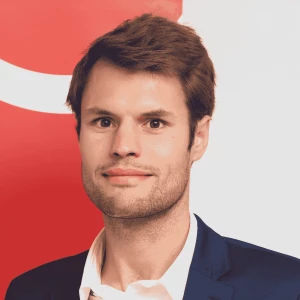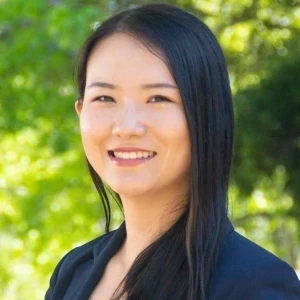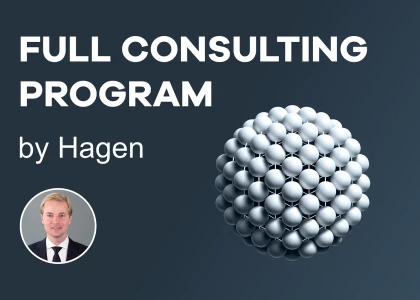I have recently secured an interview for the EMEIA FSO Strategy Consulting Internship and was wondering if I could kindly ask for your insights regarding the case study portion of the interview.
Could you please advise on the types of case studies I can expect? For instance, should I anticipate traditional consulting case studies, financial analysis scenarios, or something else? Additionally, I would greatly appreciate any tips on how to best prepare for this part of the interview.
EMEIA FSO Strategy Consulting Internship


Hi there,
First of all, congratulations on the invitation from EY!
I would be happy to share my thoughts on your question:
- You can expect classic strategy consulting case studies, albeit with a focus on financial services clients, i.e. banks, insurance companies and asset managers.
You can find more on this topic here: How to succeed in the final interview round.
If you would like a more detailed discussion on how to best prepare for your upcoming EY interviews, please don't hesitate to contact me directly.
Best,
Hagen

Hi,
The case set-up is very similar compared to a MBB case. The major difference is the industry, focusing more on banking, insurance, asset management... I have some cases available focusing on these industries.
Feel free to reach out via chat.
Mattijs

Hey there 🙂, congrats on securing your interview! For an EMEIA FSO Strategy Consulting Internship, you can typically expect a blend of traditional consulting cases and financial analysis scenarios given the focus on financial services—so you might encounter cases that test your problem-solving with strategic frameworks alongside detailed financial modeling, market sizing, or cost-benefit analysis. It’s a good idea to review core case interview techniques while also refreshing key financial concepts, and practicing with peers or using online case resources can really boost your readiness. Best, Alessa 😇

Hi there,
For the case study portion, you can expect a mix of traditional consulting case studies with a financial services (FS) focus and financial analysis-driven scenarios. Given that EMEIA FSO (Financial Services Organization) specializes in banking, insurance, and asset management, cases will often be tailored to these sectors.
For instance:
- Market Entry & Growth Strategy – e.g., "Should a bank expand into a new European market?"
- Profitability & Cost Optimization – e.g., "Why has an insurance company’s profit margin declined?"
- M&A & Due Diligence – e.g., "Should a private equity firm acquire a fintech startup?"
- Regulatory & Risk Strategy – e.g., "How should an asset manager adapt to new EU financial regulations?"
- Financial Analysis – Expect cases with a strong quantitative focus, where you might need to interpret financial statements, assess risk, or evaluate investment opportunities.
Focus on learning how to case, not on specific industries!
The key reason why candidates fail their case interviews and don't improve with practice is because they never learn the right approach and techniques to begin with. They might go through 30-40 cases, just repeating the same mistakes over and over again. There is often no strong baseline.
Make sure you understand and learn the basics for each part of the case (structuring, charts, math), which is
A replicable step-by-step for each part of the case interview
The right thinking techniques around the individual parts (e.g., what's a framework, what is evaluated, how can I ensure I think about it the correct way, what are some shortcuts to get to the answer quickly, etc.)
Simple communication templates to help you communicate your insights as well as ask for data in the right way to drive the case forward
- There are several approaches you can take, such as hiring a skilled coach, reading the right materials, or enrolling in relevant courses. For example, my book provides direct guidance tailored to modern case interviews. It covers all the essential points mentioned here, and more, while also offering a detailed preparation plan. You can find it on Amazon
Avoid generic advice and framework memorization approaches. This will only hurt your performance and waste a ton of time (why -> check out the first post here: https://www.preplounge.com/en/consulting-forum/how-goodrelevant-is-the-case-in-point-book-for-case-prep-1984)
Once you have that baseline it's time to practice and internalize the skills to create the right profile, polishing your strengths and lifting your weaknesses to a robust-enough level
- Practice drills alone (structure, chart, math) and practice full cases with other excellent candidates that know the right habits and approach. It is crucial that you are practicing with really good peers, otherwise, it's a waste of time. Practicing drills on your own is a huge effectivity and efficiency booster since you can go over many more questions in a shorter amount of time compared to practicing with peers. Do both in parallel! You want to spend your time where it is most useful, e.g., if you struggle with math focus on math drills, etc.
Focus on quality over quantity. Doing 50+ cases does not mean much if you are not applying the right habits to score high and do a detailed debrief after every case to improve. You want to move from bad to good for your weaknesses and good to great for your strengths --> use the feedback from your previous experience and tailor your prep accordingly
Consider booking at least an initial coaching session to get a detailed and objective evaluation of your performance + learn the right habits for every case regardless of context and framework + get a tailored preparation plan out of the session that will set you up for an effective and efficient prep.
It does not hurt to focus a bit more on the relevant industries of your interviewer but chances are that not every case will be from that niche!
- Don't forget the fit interview part. Prepare answers for all the typical fit questions and stories (3-5 hours) and rehearse them a couple of times (5 hours)
All the best,
Florian

What is the firm? Is this EY?
If so, expect a more technical interview. Check on Glassdoor for examples of questions.














